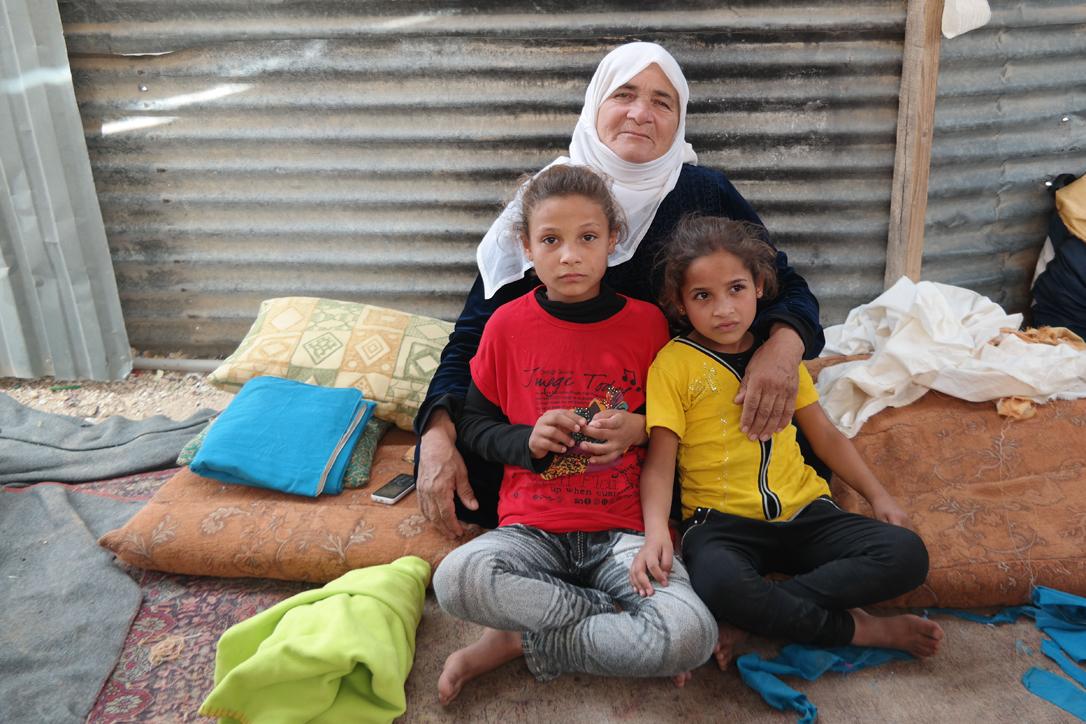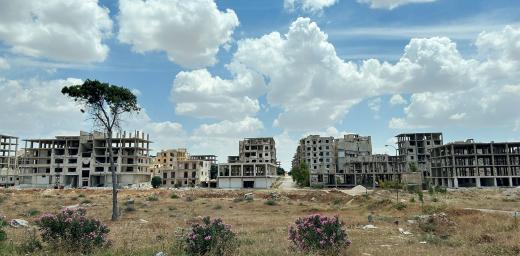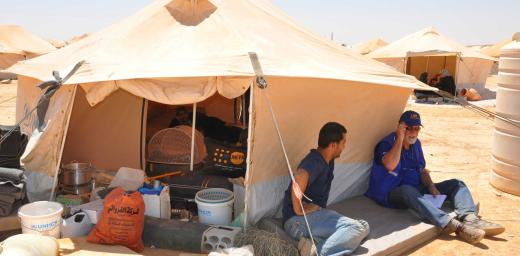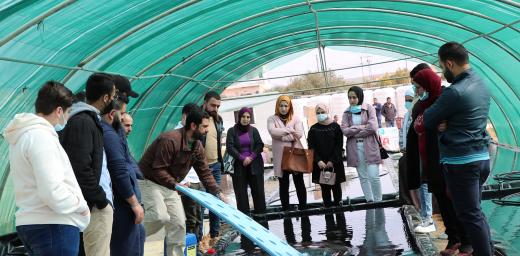Developing a culture of peace

Salam (left, in red T-Shirt) with her grandmother and younger sister in their shelter in Zaâatari camp. Photo: LWF Jordan/D. Odén
LWF Peace Oasis in Jordan counters the effects of Syrian war
(LWI) - “I wish to become a teacher,” Salam says. The six-year-old girl has just started school and is one of the many children visiting the Peace Oasis in Za’atari refugee camp, Jordan. The Peace Oasis, a psychosocial center run by The Lutheran World Federation (LWF), offers peacebuilding activities and workshops to children and youth in the camp.
Five years after the start of the war in Syria, life in Za’atari has become difficult for the more than 79,000 Syrian refugees in the camp and the thousands who live in the neighboring host community Al Mafraq. On top of often traumatizing experiences like witnessing atrocities at home, the refugees from Syria have to deal with the challenges of surviving as refugees and the prospect of an uncertain future.
Arts, music, conflict mitigation
Salam’s father was arrested by the Syrian regime more than three years ago. The family has not heard from him since. Salam´s brother was killed at the age of 20 in military clashes between the Free Syrian Army and the Syrian regime in Dar’aa. Salam’s life in the camp consists of attending school and playing with the other children after school hours. Although she smiles most of the time, Salam says she misses her home in Syria and most of all, her father.
The LWF Peace Oasis provides psychosocial support to youth and children like Salam. It is a safe and child friendly space, where children and youth participate in activities such as drama, visual arts, games, group discussions, and workshops on conflict mitigation skills. They learn communication skills, solve problems and build their self-esteem. There are clubs and activities such as art, music, karate, football and computer courses.
The Peace Oasis program aims to develop a culture of peace and to build resilience in dealing with the impacts of the conflict situation. The need is great. “The refugees often say that the overall situation has deteriorated over the past year. They feel that there are a lack of opportunities for children and few, if any, spaces for children, youth and adults to escape their worsening household conditions,” Rachel Luce, the LWF Team Leader in Jordan, says.
Prevent lasting effects of trauma
Increased stress levels have also contributed to a rise in gender-based violence. Many Syrian women and girls are afraid to walk to school, the washrooms, the store or anywhere else to access services. Early marriage is increasingly a concern, as families believe marriage contracts protect their daughters. In 2016 therefore, LWF plans to offer workshops to caregivers on child protection, to alert them to the dangers of child labour, the need for child education, and to engage in discussions on abuse, gender-based violence and child marriage.
“Conflict can have serious long-term effects on the mental health of children and youth,” Dawid Odén, LWF Program Support Officer in Jordan, says. “They manifest later as social isolation, self-harm, aggression and depression. These effects can impact an entire generation of young people and threathen future peace and development in areas recovering from conflict.”
During 2015 LWF psychosocial work reached 2662 Syrian refugees in Za’atari camp. LWF has also improved the infrastructure of the Peace Oasis by covering the sports field with artificial grass to make it a safer place for boys and girls to benefit from physical exercise.
Contribution by Dawid Odén, LWF Jordan. Edited by LWF Communications.





